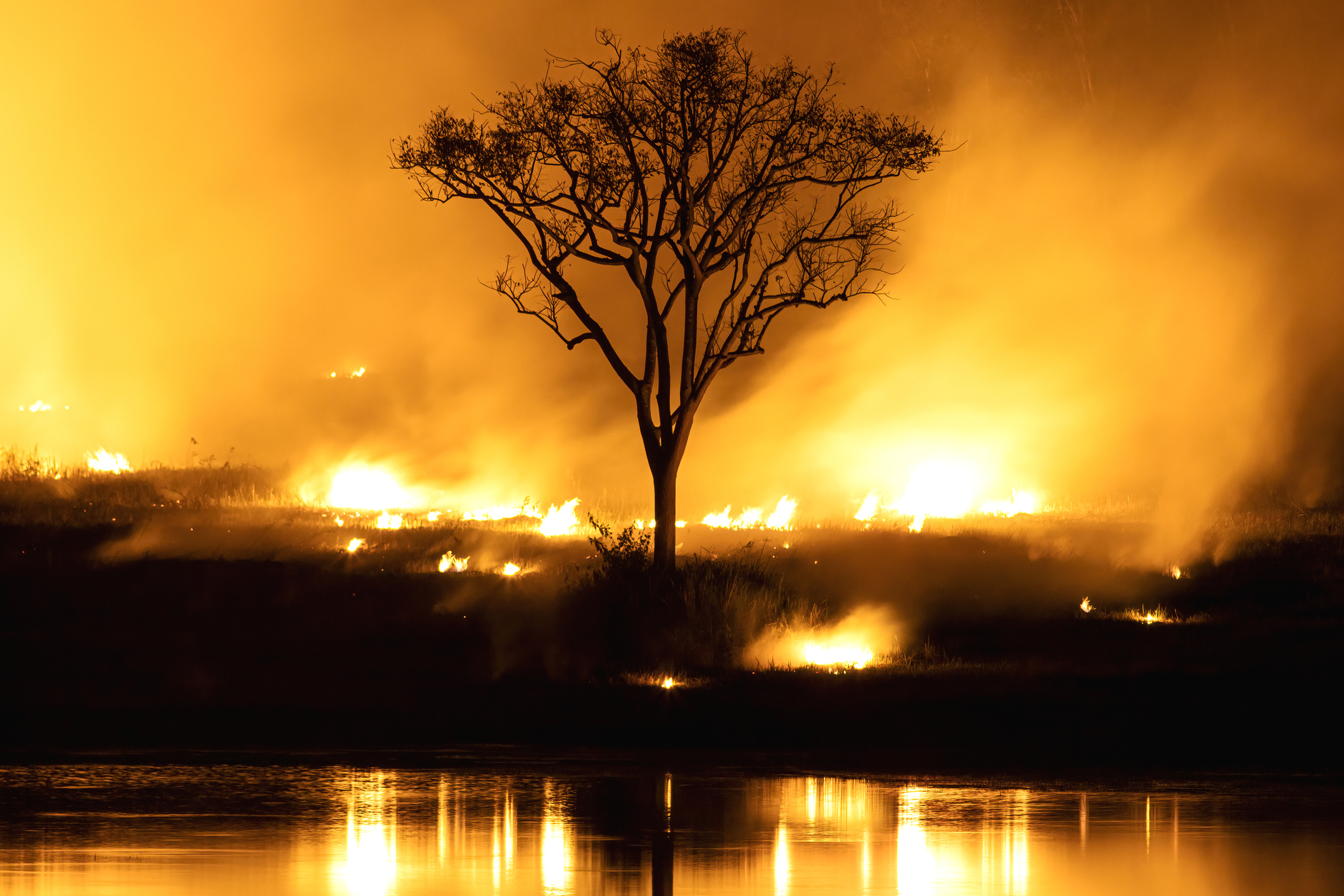Fossil fuels contributed to more than one-third of western wildfires


A free daily email with the biggest news stories of the day – and the best features from TheWeek.com
You are now subscribed
Your newsletter sign-up was successful
Approximately 37% of the total area burned by wildfires in the western U.S. and Canada can be attributed to the emissions produced by the top 88 fossil fuel producers and cement companies, according to a report by the Union of Concerned Scientists published in the journal Environmental Research Letters.
The study also found these companies' emissions "contributed to nearly half of the increase in drought- and fire-danger conditions across the region since 1901." Cement companies alone produce close to 7% of global carbon dioxide emissions, per CNN. "We hope that people who are in communities that have been affected by wildfires will see this work and think about whether they want to hold these companies accountable," remarked study lead author Kristina Dahl.
Fossil fuels are the top cause of climate change globally and have singlehandedly raised the average global temperature by 0.5 degrees Celsius since the early 1900s, CNN continued. "We know that many of these companies have known for decades about the consequences of climate change," study co-author Carly Phillips told CNN. "But instead of sharing that information with the public, they engaged in this deliberate misinformation campaign to deceive the general public and cast doubt on climate science."
The Week
Escape your echo chamber. Get the facts behind the news, plus analysis from multiple perspectives.

Sign up for The Week's Free Newsletters
From our morning news briefing to a weekly Good News Newsletter, get the best of The Week delivered directly to your inbox.
From our morning news briefing to a weekly Good News Newsletter, get the best of The Week delivered directly to your inbox.
"The study takes what we know about the strong relationship between climate and burned area, and extends this understanding to the role of big fossil fuel emitters," explained Caroline Juang, a researcher with the Lamont-Doherty Earth Observatory at Columbia University, to CNN. Jatan Buch, a research scientist at the same observatory added, "The continued greenhouse gas emissions due to these companies' products in the late 20th century resulted in loading the dice for the western U.S. climate toward a hotter and drier future with a higher likelihood of catastrophic wildfires."
Editor's note: The original version of this article contained inaccurate statistics and has since been corrected. We regret the error.
A free daily email with the biggest news stories of the day – and the best features from TheWeek.com
Devika Rao has worked as a staff writer at The Week since 2022, covering science, the environment, climate and business. She previously worked as a policy associate for a nonprofit organization advocating for environmental action from a business perspective.
-
 Local elections 2026: where are they and who is expected to win?
Local elections 2026: where are they and who is expected to win?The Explainer Labour is braced for heavy losses and U-turn on postponing some council elections hasn’t helped the party’s prospects
-
 6 of the world’s most accessible destinations
6 of the world’s most accessible destinationsThe Week Recommends Experience all of Berlin, Singapore and Sydney
-
 How the FCC’s ‘equal time’ rule works
How the FCC’s ‘equal time’ rule worksIn the Spotlight The law is at the heart of the Colbert-CBS conflict
-
 How climate change is affecting Christmas
How climate change is affecting ChristmasThe Explainer There may be a slim chance of future white Christmases
-
 Blue Origin launches Mars probes in NASA debut
Blue Origin launches Mars probes in NASA debutSpeed Read The New Glenn rocket is carrying small twin spacecraft toward Mars as part of NASA’s Escapade mission
-
 Why scientists are attempting nuclear fusion
Why scientists are attempting nuclear fusionThe Explainer Harnessing the reaction that powers the stars could offer a potentially unlimited source of carbon-free energy, and the race is hotting up
-
 Dinosaurs were thriving before asteroid, study finds
Dinosaurs were thriving before asteroid, study findsSpeed Read The dinosaurs would not have gone extinct if not for the asteroid
-
 Canyons under the Antarctic have deep impacts
Canyons under the Antarctic have deep impactsUnder the radar Submarine canyons could be affecting the climate more than previously thought
-
 SpaceX breaks Starship losing streak in 10th test
SpaceX breaks Starship losing streak in 10th testspeed read The Starship rocket's test flight was largely successful, deploying eight dummy satellites during its hour in space
-
 NASA is moving away from tracking climate change
NASA is moving away from tracking climate changeThe Explainer Climate missions could be going dark
-
 Rabbits with 'horns' sighted across Colorado
Rabbits with 'horns' sighted across Coloradospeed read These creatures are infected with the 'mostly harmless' Shope papilloma virus
